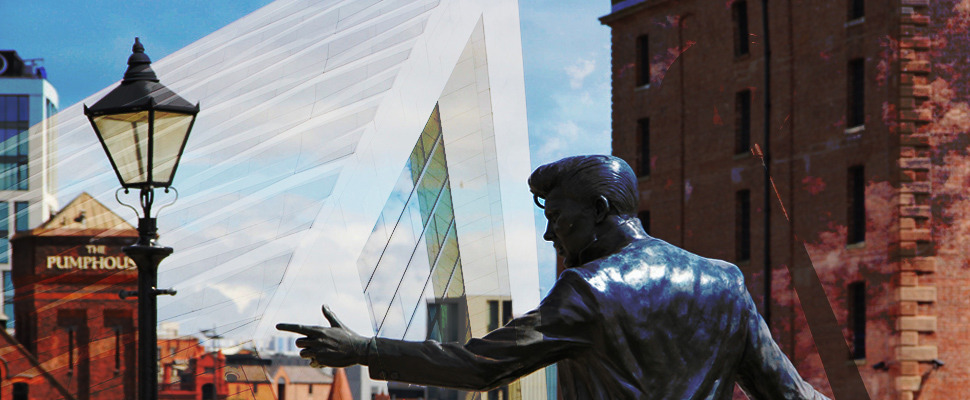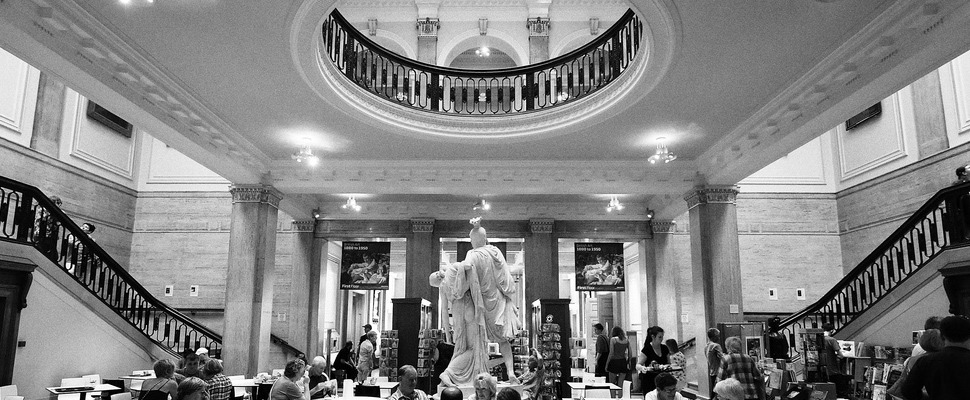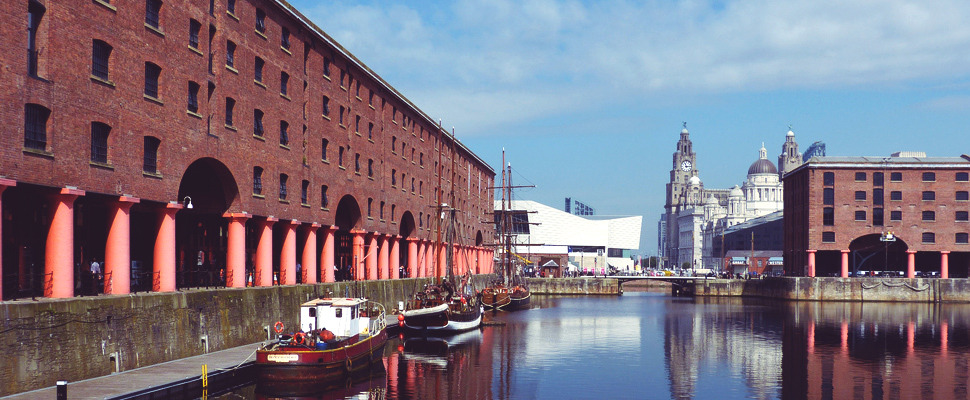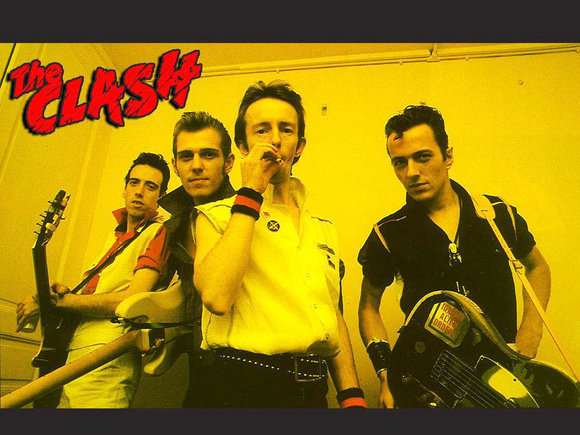Steve Munby: Time To Face The Music
It's nice to look back over old diary entries, isn't it? Reminds you of the ideals you once stood for. Reconnects you to the things you once held so dear.
Old punks, they say, never die. But some do turn into councillors. Seems that the city’s puritan in chief, Councillor Steve Munby, did once have a youth. And by all accounts, he seemed to be a sound fella. It’s just such a shame that the middle aged Munby is unable, or unwilling, to channel his 24 year old self, and see the city through a young person’s eyes these days.
SevenStreets has unearthed editorials written by Munby back in the days when he was a Communist Party member, writing for Challenge, the Young Communist League’s magazine, and Marxism Today.
Back then, Munby evangelised about the ‘power of music’ and its ability to ‘move the masses’. Tricky to do if you’re slapped with a noise abatement order.
 Make no mistake, there’s a definite shift in the way Munby (who, let’s not forget, is a Councillor elected to represent all of our interests: young, old, families, singles) sees how the city’s priorities shuffle down. Today’s Munby talks of challenging ‘anti-social behaviour so we can enjoy peace and quiet in our homes’ and, in the Fabian Society’s Summer Review, points out ‘one of Labour’s biggest failings in Government was to focus too much on hard power and legislation” and of his desire for city centres to come complete with ‘food gardens, allotments and play areas.’ Before the council slaps a CIP on the Ropewalks, and a Noise Abatement Order on Static.
Make no mistake, there’s a definite shift in the way Munby (who, let’s not forget, is a Councillor elected to represent all of our interests: young, old, families, singles) sees how the city’s priorities shuffle down. Today’s Munby talks of challenging ‘anti-social behaviour so we can enjoy peace and quiet in our homes’ and, in the Fabian Society’s Summer Review, points out ‘one of Labour’s biggest failings in Government was to focus too much on hard power and legislation” and of his desire for city centres to come complete with ‘food gardens, allotments and play areas.’ Before the council slaps a CIP on the Ropewalks, and a Noise Abatement Order on Static.
Hard power and legislation, anyone?
It’s all a long way from that heady summer of 78, when the same Steve Munby was writing:
“Perhaps punk bands like the Clash have come nearest to capturing a contemporary image, capable of “moving the masses”, with their emphasis on boredom, frustration, blocked opportunities and wasted creativity. The sphere of music and culture is of crucial significance in mobilising masses of young people on political issues. A major priority for CAYU must be to develop a relationship with and be seen to be part of the progressive trends in youth culture.”
What would Joe Strummer say, Steve? Probably not ‘turn it down a bit, we’re trying to sleep.’
In many great and important ways, Liverpool has moved on from the dark days of the late 70s and early 80s. But in others, 2012 could be seen as a mirror image. We have slash and burn Tory Government stealing from the city’s purse, and the scrapping of the educational maintenance allowance currently given to 6,937 of Liverpool’s poorest young people.
We’re in the grip of a recession. The jobless figures keep on rising. And, against this backdrop (as we said yesterday) Liverpool’s doing what it does best: inventing ways to keep the city alive. And, in tough economic times, that means finding an outlet wherever you can. Which, probably, isn’t going to be the Echo Arena or the Phil, sadly.
This rallying of our culture to get us through dark days serves as not only a catalyst for change, but, more importantly, a channel for youth opportunities. Every new bar, band or shoestring performance space in our midst is a beacon: a sign that we’re still here. And we need our Councillors, before everything else, to be brave enough not to chase the safe votes, but - as one of our commenters yesterday reminded us - take Tony Wilson’s line: and say ‘if you don’t like noise, get out of the city centre.’
It’s something the young Councillor Munby championed.
“The politics of youth unemployment aren’t rooted in absolute material deprivation. Instead we have a politics of boredom and frustration at blocked opportunities and the contrast between the consumer society and the experience of the dole queue.”
The solution for this frustration and boredom? Young Munby is unequivocal: M - U - S - I - C
“The new currents in popular music, are far more positive, with long-term implications both in the cultural arena and the broader field of youth politics,” the young Munby says.
“One of the important features of punk rock has been the manner in which it has expressed and channelled these feelings. Harnessed well, it could register important advances. The possibility exists of winning young people as a social group to the left, which would have a major impact on the balance of political forces in Britain”
To the Ropewalks Resisdents Association Councillor Munby is something of a hero these days: for it was their joint efforts that brought about the introduction of the Cumulative Impacts scheme (we’ve seen Minutes of the Residents’ meetings: sometimes attended by less than 10 residents, all with a particular grudge. And we wonder whether they do have a mandate at all to speak on behalf of the rest of us at all).
However, despite Munby being lionised by a small core of Ropewalks residents, back in 2005 he called for city centre flat developments to be halted. He saw the continuing rise of city centre apartments as a problem: potentially turning the city into a ‘ghost town’. Despite this, Munby stated he had no objection to families moving in. Munby’s chief concern was the availability of one bedroom flats for young people to live in: ‘Tenants can be a problem and can be difficult to remove when the time comes to sell-on,” he said at the time.
So, Ropewalks Residents - at least those not happily married with two lovely children and a Prius - sorry to disappoint you, but Munby’s view of a thriving city centre would seem to have no place for you in it, either. Unless you spend your nights on an allotment.
No music, no young people, no single people, ASBO supporting Munby is clearly a long, long distance from his younger self. But this city, Councillor Munby, hasn’t grown old with you.
So, Steve, you gotta let us know: should we stay, or should we go?
David Lloyd
We’ve asked Councillor Munby for a comment, and will post one if we get it.

























Pingback: ‘Go and Get Some Treatment, Mate’: Munby Responds: | Sevenstreets